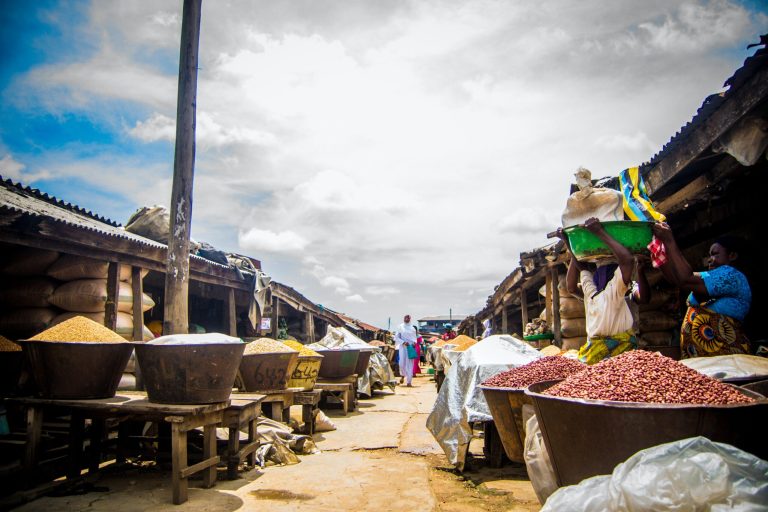The National Bureau of Statistics (NBS) recently released consumer price index (CPI) data for January 2024, revealing a significant escalation in the cost of imported food within the Nigerian economy.
Over a span of four years, from January 2020 to January 2024, the average price index for imported food witnessed a staggering increase, more than doubling from 337.8 to 692.6. This marks an unprecedented rise of 105.03% in the period under review.
The CPI, a critical economic indicator, measures the average change over time in the prices paid by urban consumers for a market basket of consumer goods and services, including food.
The leap in the index for imported food from 337.8 in January 2020 to 692.6 in January 2024 underlines substantial inflationary pressure in the food sector, particularly for food imported into Nigeria.
Moreover, the inflation rate for imported food items, which is a specific component of the overall inflation measuring the rate at which the cost of imported foods increases over time, climbed from 16.12% in January 2020 to 26.29% in January 2024.
This increase of 10.17%-points further underscores the accelerated pace at which the prices of imported food items have been growing.
Imported food inflation on the rise
The CPI data further highlights a notable uptick in the inflation rate for imported food in Nigeria, evidencing a significant shift from 18.49% in January 2023 to 26.29% in January 2024, marking an increase of 7.8%-points within approximately a year.
This period also saw the price index escalating from 548.4 in January 2023 to an even higher figure in January 2024.
Furthermore, a month-on-month comparison reveals a 1.39%-point rise in food inflation from December 2023 to January 2024, indicating a persistent upward trend.
Understanding the dynamics behind the increase
The continual rise in the inflation rate for imported food can be largely attributed to significant economic policies and global factors that have directly impacted the cost of food imports in Nigeria. Key among these include:
- Exchange Rate Volatility: The unification process in June 2023, aimed at creating a more transparent and efficient foreign exchange market, resulted in a steep depreciation of the naira, from about N460/$ in June 2023 to over N1,600/$ currently. Such a devaluation increases the local currency cost of goods priced in foreign currencies, directly affecting the cost of imported foods.
- Global Supply Chain Disruptions: The period from 2020 to 2024 has seen unprecedented global supply chain challenges exacerbated by the COVID-19 pandemic and geopolitical tensions in key regions such as the Russia-Ukraine war and the Red Sea attacks. These disruptions have led to increased shipping costs and delays, contributing to higher prices for imported goods.
- Domestic Inflationary Pressures: Nigeria has been grappling with domestic inflationary pressures driven by various factors, including rising energy costs and internal security challenges affecting agricultural production. These factors compound the inflation rate for imported food items.
What you should know
Nigeria confronts a significant escalation in the average price index and inflation rate for imported food, casting a shadow over consumers, especially those in urban regions who are predominantly dependent on imported food staples.
This surge not only strains household budgets but also portends broader economic consequences, potentially destabilising the country’s balance of payments and intensifying current account deficits.
In response to the mounting pressure of escalating food prices, the Trade Union Congress (TUC) recently urged the Federal Government to initiate the immediate importation of essential food items as a mitigative measure.
Corroborating this sentiment, Mohammed Idris, the Minister of Information, disclosed the government’s contemplation of food importation as a temporary remedy to alleviate the burgeoning prices of food commodities.
More Insights
- Contrarily, President Bola Tinubu has taken a stand against the importation strategy, advocating for Nigeria’s potential in achieving self-sufficiency and emphasising the administration’s commitment to nurturing domestic food production capabilities.
- The International Monetary Fund (IMF) also weighed in, pinpointing the acute food crisis in Nigeria and other sub-Saharan nations as a consequence of an excessive reliance on imported foods. The IMF further elaborates that global dynamics, including the region’s dependency on imports for staple foods, have significantly influenced local food price inflation, demonstrating a considerable pass-through effect from global to local markets.
- As of January 2024, food inflation soared to 35.41%, compelling Nigerians to navigate the complexities of escalating food costs amidst dwindling purchasing power.
- The NBS underscored this predicament, reporting a sharp 11.10%-point rise in the food inflation rate from 24.32% in January 2023 to 35.41% in January 2024.
- Analysing the inflationary drivers, it becomes evident that significant price increases across vital food commodities—ranging from bread and cereals to potatoes, yams, other tubers, oils, fats, fish, meat, fruits, and even beverages like coffee, tea, and cocoa—are the primary catalysts. This trend not only reflects the immediate challenges faced by Nigerian consumers but also signals the need for a strategic reassessment of the nation’s food security policies and economic resilience measures.


